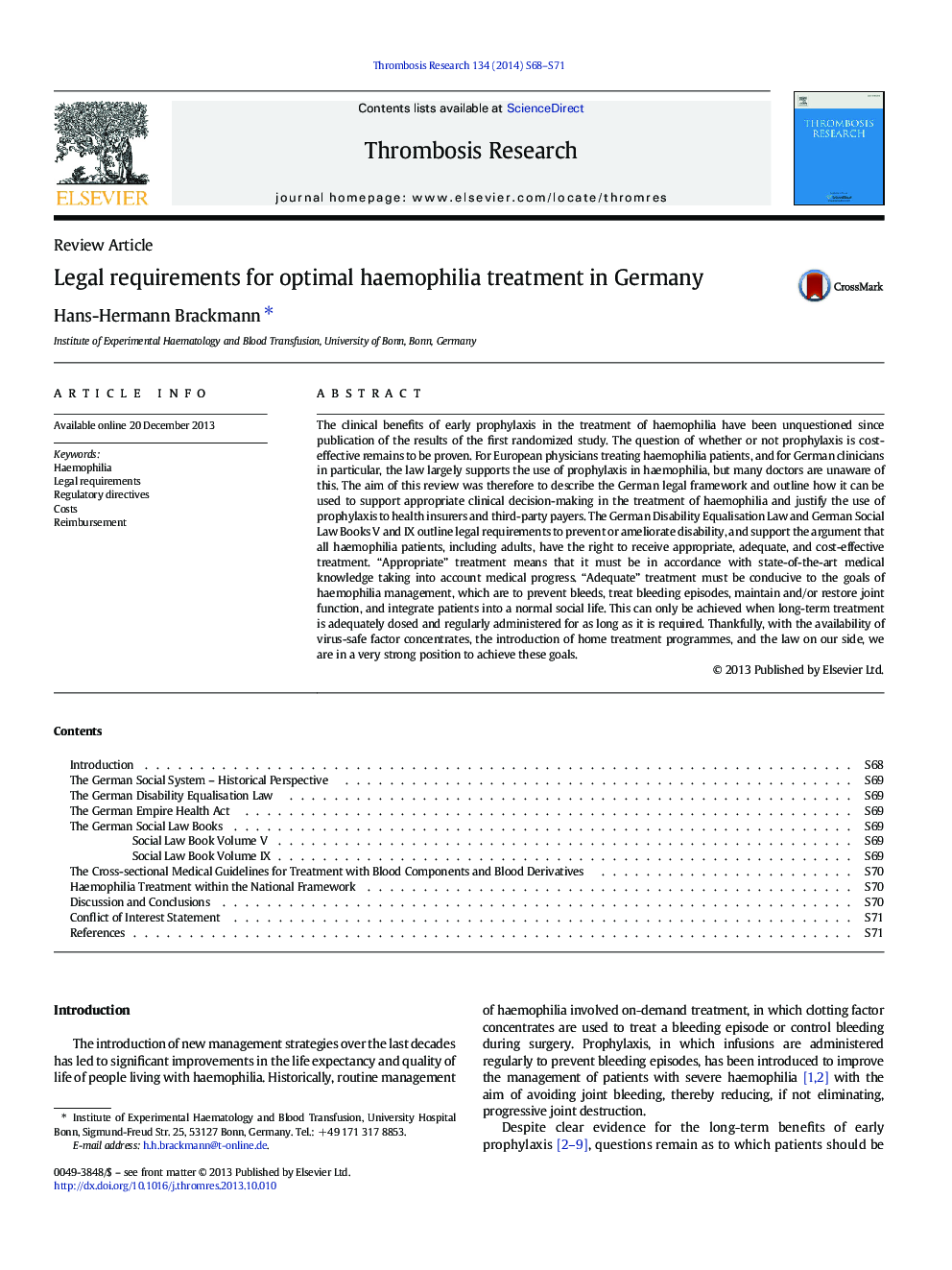| Article ID | Journal | Published Year | Pages | File Type |
|---|---|---|---|---|
| 3027170 | Thrombosis Research | 2014 | 4 Pages |
The clinical benefits of early prophylaxis in the treatment of haemophilia have been unquestioned since publication of the results of the first randomized study. The question of whether or not prophylaxis is cost-effective remains to be proven. For European physicians treating haemophilia patients, and for German clinicians in particular, the law largely supports the use of prophylaxis in haemophilia, but many doctors are unaware of this. The aim of this review was therefore to describe the German legal framework and outline how it can be used to support appropriate clinical decision-making in the treatment of haemophilia and justify the use of prophylaxis to health insurers and third-party payers. The German Disability Equalisation Law and German Social Law Books V and IX outline legal requirements to prevent or ameliorate disability, and support the argument that all haemophilia patients, including adults, have the right to receive appropriate, adequate, and cost-effective treatment. “Appropriate” treatment means that it must be in accordance with state-of-the-art medical knowledge taking into account medical progress. “Adequate” treatment must be conducive to the goals of haemophilia management, which are to prevent bleeds, treat bleeding episodes, maintain and/or restore joint function, and integrate patients into a normal social life. This can only be achieved when long-term treatment is adequately dosed and regularly administered for as long as it is required. Thankfully, with the availability of virus-safe factor concentrates, the introduction of home treatment programmes, and the law on our side, we are in a very strong position to achieve these goals.
